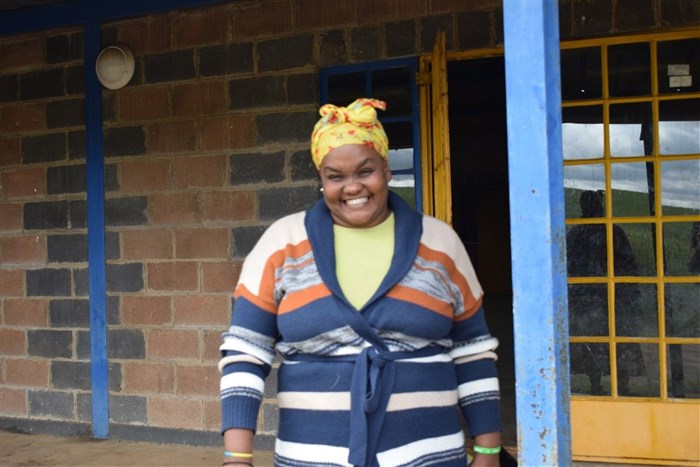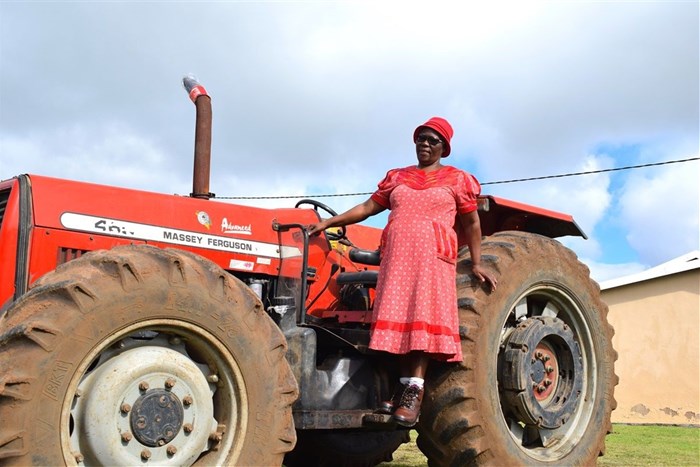South Africa's R12bn sugar industry ranks in the top 15 out of approximately 120 sugar producing countries worldwide; making it an industry which is making a positive difference in the lives of many by employing 85,000 people and creating 350,000 indirect jobs. As such, serving as a catalyst for economic growth and development in rural communities, especially in Mpumalanga and KwaZulu-Natal. While great strides have been made in making the sector more economically inclusive, sugarcane production is still a male dominated sector.

Sindisiwe Khuzwayo
In recent years, however, women have been taking key leadership roles within the out-grower community and have shown great entrepreneurial resilience. This is the story of just two such women.
Since 2016, Solidaridad Network Southern Africa Trust, in collaboration with Illovo, has been supporting smallholder sugarcane farmers in Noodsberg, KwaZulu-Natal. The support focused on capacity building of the growers’ skills in leadership, business and financial management and good corporate governance. There are about 1,300 farmers in the area growing on a total of 1,700ha as cooperatives under rainfed conditions, harvesting every 18 to 24 months.
The increase in women participating in sugarcane production is evident in the Noodsberg area, with farmer groups like the Gqugquma out-grower co-operative founded in 2002 by a group of smallholder farmers in Swayimane. The Gqugquma cooperative has 80 active farmers and is headed by Sindisiwe Khuzwayo, its first female leader since inception. The co-operative’s ongoing success can be attributed directly to multi-stakeholder engagement and mentoring.
Gqugquma was mentored by commercial farmers operating within the area, who helped the smallholder group with agronomic support such as planting methods and also helped them understand the benefits of mechanising their operation by using tractors on their farms.
Mechanising operations
There is growing evidence, however, that while this support is necessary, most group-based small-scale agricultural fails because of the human aspect of business leadership and management capabilities, rather than the technical agronomic abilities of farmers. Khuzwayo attests to this as it affirms her experience with leading this cooperative: "We initially had 110 members, but there was a major disagreement between members due to a lack of education.
"A great example of this is that you find individuals with the same amount of land who earn different amounts of money upon harvest. Those of us who are on the project have overhead costs such as tractor services, tools, employees, diesel costs and drivers. At the end of the day, you find that the farmer who is not on the project gets R16,000 and those who are on the project get between R9,000 and 10,000. This would disgruntle a lot of project members as they are negating the fact that one receives revenue while the other receives profit."
Khuzwayo adds that the out-grower community is not educated on the workings of a business and dividends and other financial mechanisms work. As a result, the project saw 30 people drop out, leaving the Gqugquma co-operative with 80 farmers. Today, Khuzwayo views the empowerment of each member as part of her key deliverables because it increases cohesion amongst the members and under her leadership, the Gqugquma co-operative has been able to gain better business and finance management understanding through a series of workshops.
As a leader she believes in the adage "there is strength in numbers" and that we can achieve more collectively than we can as individuals. Khuzwayo manages relationships amongst members, group accreditations, reporting on growth progress of crop and identifies opportunities for the growth of the co-operative for example the building of shelters for their new tractors which was funded by the KZN government.
Gender inclusivity
Illovo has also taken steps in the right direction towards gender inclusivity. One of the contractors of the Illovo mill in Noodsberg is Nomusa Gwala, a former teacher who started her farming activity on a one-hectare piece of land owned by her family.

Nomusa Gwala
As a teacher, Gwala had a dream to build her family a home and decided to start a brick making project to back up her ambition. Every day coming back from school, she would make bricks until she had enough to contract builders to come and build her family home. With this dream coming to fruition in the full view of her neighbours, many knocked at her door to try to buy bricks from her … and her brick making business was born. With profits from the brick-making business, she was able to save money to buy her first truck.
Gwala's efforts saw her growing her operation from one hectare to 18 hectares by leasing idle plots from her neighbours. Being an independent farmer meant that she was at the forefront of engaging the mill on the growth opportunities available to the community. That's when she saw an opportunity to be contracted by the Illovo Noodsberg mill to service her farm and surrounding farms in cane haulage. She sourced a haulage truck that she financed with the money from her brick-making business and part of her salary’s savings from her teaching job. Over the years she has displayed admirable entrepreneurial skills and now owns four haulage trucks, three tractors, two grab loaders, an active farming operation of 18 hectares and employs 22 people.
Both Nomusa Gwala and Sindisiwe Khuzwayo have stressed access to land as a big bottle-neck in their aspirations to grow from smallholder farmers to become commercial farmers. In Gwala’s case, over 90% of her farming operation is on land that can be reclaimed at any given time. Khuzwayo adds that because each person in her co-operative owns only one hectare of land, the socio-economic impact and growth prospective within her community is very low.
These two women continue to lift as they rise by making sure that through their efforts and ambitions, their community gets to retain its pride through commercial activity.




































